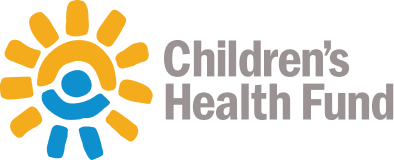“Doctora, there’s no food at home. And we ran out of formula for the baby a few days ago.”
These are the heartbreaking words uttered by a mother who brought in her baby, Anisa, for a six-month baby well-child checkup at the Children’s Health Fund-supported New Orleans Children’s Health Project (NOCHP). The baby was crying and hungry. She had only been drinking juice because her mother had run out of formula.
This COVID-19 crisis is forecast to deepen poverty in our country in ways we haven’t seen in over half a century. The impact on children will be the hardest.
Every day, the headlines scream of the millions of people who are filing for unemployment and food benefits. And even with this help, many families that visit the clinics we support across the country are now, literally, on the brink of starvation.
Decades ago, Dr. Jack Geiger, the founder of the community health center movement, famously wrote a medical prescription for food for a malnourished baby. To Dennis Walto, CEO of Children’s Health Fund (CHF), this moment calls for the same urgent approach. “If children are showing up in our clinics sick because they are hungry, that is what we must do today: ensure children and families have access to nourishing food,” he says.
A Deepening Crisis for Immigrant Families

A month ago, Miguel Alonso, the case manager at NOCHP, noticed that fewer families were calling the clinic to make appointments or ask typical questions related to sick children. He suspected there was more at play than social distancing. With the clinic open now only to children under one year needing vaccinations and developmental monitoring, there were fewer patients. “The day our Medical Director Dr. Kim Mukerjee held baby Anisa’s empty baby bottle, that day was the day the bomb went off,” recalls Miguel.
A majority of the families served by NOCHP are immigrants, and they are largely ineligible for any government benefits.
Miguel started calling families to check in. What he heard was alarming and set the team in motion to act quickly. Families were in survival mode. They were not only running out of food, those with chronically sick children were rationing needed medication; in one case, a seizure medication was cut in half to make it last longer. Basic childcare items such as diapers had run out.
“Due to their status, immigrant families in our community have no other options. They can’t access emergency cash benefits. Children don’t have the benefit of school lunches anymore,” said Miguel. “They don’t have a way to support themselves. Those who can work, are not getting the necessary protections on the job and risk infecting large families at home,” he added.
“Mothers were telling me they suspected their children had fevers but had no thermometers, and even lacked basic medications such as Tylenol,” recalls Miguel. He made a list with the most critical cases and worked to assemble packages with items purchased from their emergency fund and from emergency reserves they had at the clinic.
In the months leading up to the pandemic, the clinic had also been able to set up a partnership with a food bank. Thanks to this, Miguel was also able to provide Anisa’s family and those on his list each with 40 pounds of food that included non-perishable items, and fresh fruits and vegetables.
These last couple of weeks have been absolutely frantic for the team at NOCHP. Miguel has been calling 10-15 families a day and the list is growing for another round of deliveries.
“These weeks have really reinforced my passion to help others. Bringing critically needed care packages to families and hope during this crisis has been emotionally hard. For me, it has been excruciating to receive thanks with looks and not the usual hugs,” reflects Miguel.
And there is more that weighs on his mind. The shift to telehealth has left behind many patients who simply don’t have the technology to receive needed healthcare over devices.
Not only are many children missing their well child check-ups, including those with serious chronic health conditions, but immigrants are being screened and tested at much lower rates than the rest of the population in New Orleans. Without access to any medical care, these families and children are more at risk of contracting COVID-19.
More urgent support is needed to help families access enough food, medicine, and supplies during this crisis. CHF’s partners work to connect families to those services, and your support can be their lifeline.








